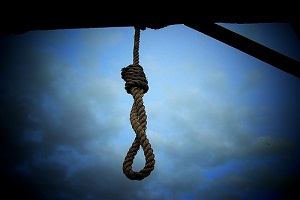As long as they were alive, they were shunned by their people. It is only after their death that Maqbool Butt and Afzal Guru are lionised.
Rashid Ahmad
SRINAGAR: It was astonishing to read a statement of a Hurriyat leader, a day after Afzal Guru was hanged, that Guru along with Maqbool Butt “is the basic pillar of our freedom movement”.
Only last year I read this leader supporting, as revealed in Wikileaks, Guru’s hanging.
Let me not limit myself to the hypocrisy of this leader alone. Guru became the casualty of a general apathy in the valley of Kashmir. Right from the day he was arrested and implicated in Parliament attack, he was seen, at least in private interface, as a “collaborator.”
Many people in the Valley believed that the attack on parliament was orchestrated by government agencies. Till he was awarded death penalty, I had never heard any leader of significance ever saying a word or two to sympathize with Guru.
Even the Kashmir High Court Bar Association (KHCBA), which has a good record of contesting cases of Kashmiri youths arrested by security agencies, never bothered to offer him legal assistance during trial. I know about some resistance leaders (say Hurriyat) who would occasionally visit his Sopore home, sympathizing and identifying with his family but they owe an explanation as to why they didn’t ever think of giving legal aid to Guru.
Two years ago, when a Delhi Court sentenced a Kashmiri prisoner to death, Syed Ali Geelani declared that he would raise funds and fight legal battle for his release. But in the case of Afzal Guru, there is a collective guilt. He was left alone to face the might of one billion Indian people enraged by the attack on what they called “symbol of democracy”.
No lawyer in Delhi agreed to take up his case for known reasons. But what stopped Kashmiri lawyers is still unknown. As a result, Guru, as some legal experts say, was sent to the gallows unheard and unrepresented in the court of law.
Incidentally Maqbool Butt too was tried and hanged in an atmosphere of suspicion and doubt. Butt was hanged in the same prison in 1984 for killing an intelligence officer. His hanging did not evoke any reaction in Kashmir then. Late Abdul Gani Lone was the only leader who protested against Butt’s hanging. Since Lone’s influence was restricted to some pockets of Kupwara and Baramullah districts alone, it had no impact on the overall situation in the valley.
But, when the armed struggle began in Kashmir in the late 1980’s, Butt came to be known as its symbol. He was lionised as ‘a national hero.’
We knew Shaikh Mohammad Abdullah as Sher-e-Kashmir (lion of Kashmir)in his lifetime. But the lion came to be seen as ‘villain’ soon after his death. Armed guards have been deployed around his grave at Nigeen to protect it from public wrath.
On the contrary Maqbool is revered as “Shaheed-e-Azam” or great martyr. And now, Afzal has taken a place next only to him.
(The author is a senior journalist formerly associated with Hindustan Times. Feedback at [email protected])










